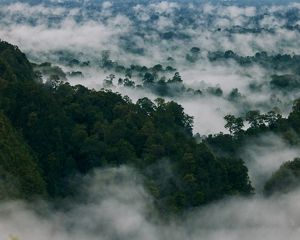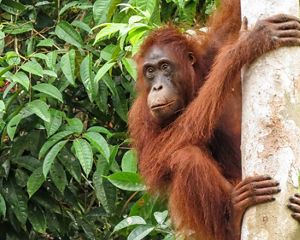Ocean Protection in the Savu Sea
Conservation and community-led efforts ensure the Savu Sea's rich biodiversity and the livelihoods it provides for future generations.
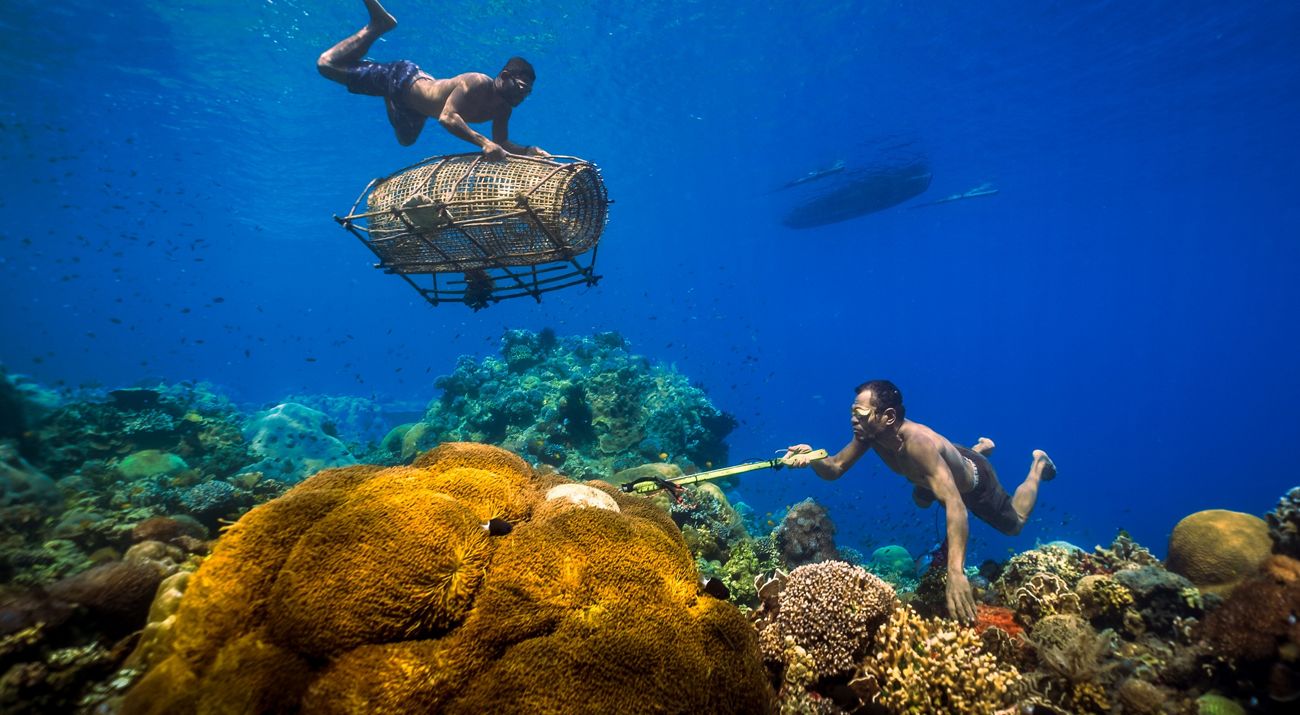
The Savu Sea, located at the confluence of the Pacific and Indian Oceans, is a region of remarkable ecological importance. Its deep-sea trench, which can reach depths of more than 6,500 feet, serves as a migratory highway for marine species such as whales and turtles. In fact, 14 species of whales—including the blue whale—use this corridor, and the area functions as both a breeding and feeding ground for whales and dolphins, drawn by these highly productive waters. Sea turtles also use Indonesia's powerful currents to reach the region’s beaches for nesting.
The rich waters of the Savu Sea are a vital source of food and livelihood for local communities. Through the implementation of sustainable economic development and the establishment of protected marine areas, this valuable resource can continue to support future generations.
The Nature Conservancy and partners have implemented a range of management practices, including:
- a resilient marine protected area network that safeguards biodiversity and fisheries,
- marine spatial planning that proactively identifies and resolves conflicts between human and nature, and
- a marine protection agreement that brings many different parties together to agree on conservation goals.
TNC, through its main partner Yayasan Konservasi Alam Nusantara (YKAN), supports the Indonesian government in refining a scientifically designed network of marine protected areas that connects 77 key areas across the Lesser Sunda region, potentially providing protection for 7.7 million hectares of additional marine areas. In close partnership with the local government and other stakeholders, we are working to increase the effectiveness of marine protected area management. YKAN also supports the conservation of the 3.35 million-hectare Savu Sea National Park managed by the government.
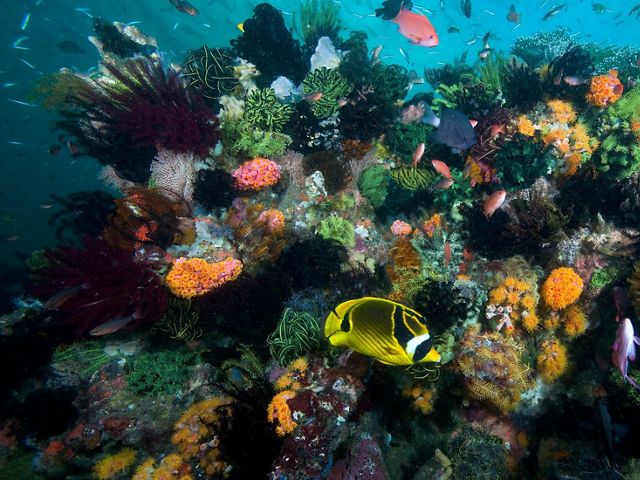
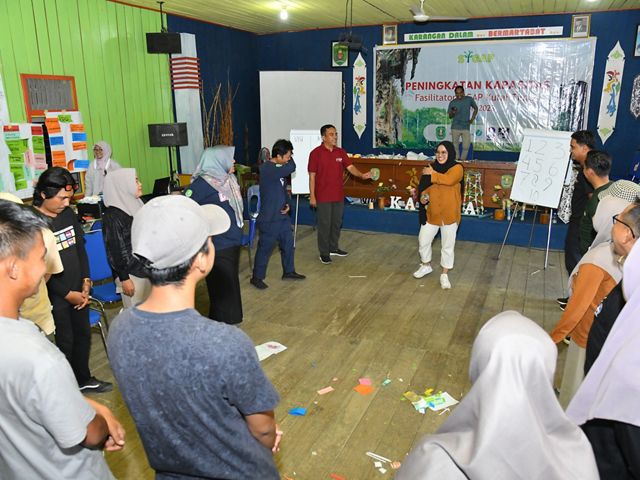
SIGAP: Community Inspiring Actions for Change
The goals of SIGAP are to strengthen village governance, ensure access rights and sustainable resource management, and develop sustainable livelihood strategies.
Community Engagement
Working with the Nusa Tenggara Timur provincial government and the Kupang National Marine Conservation Area Office, YKAN introduced community-based marine resource management through the SIGAP approach. Utilizing the Blue Economy strategy, YKAN collaborates with various partners to support coastal communities in identifying and developing sustainable livelihoods through community-based initiatives such as aquaculture (seaweed and shrimp farming), ecotourism and other nature-based economic opportunities.
By 2024, YKAN has assisted 38 business groups from 14 coastal villages in Wakatobi, Berau and Southwest Papua, including communities in the Savu Sea National Marine Park. Community participation in managing marine protected areas is an important factor. By strengthening a sustainable nature-based economy, it is hoped that the coastal areas will also be well maintained. The assisted groups have been able to process and produce value-added fishery products such as fish chips, seaweed chips and fish floss, gaining access to local markets at the village and sub-district levels. Some have even been able to sell products to the city through souvenir shops and online.
These sustainable livelihoods, developed through a community-based initiative model, are part of a joint agreement between YKAN and the community. With support from various parties, including local governments and the private sector, YKAN is committed to prioritizing the development of blue economy principles as a strategic part of the implementation of its ocean conservation program.



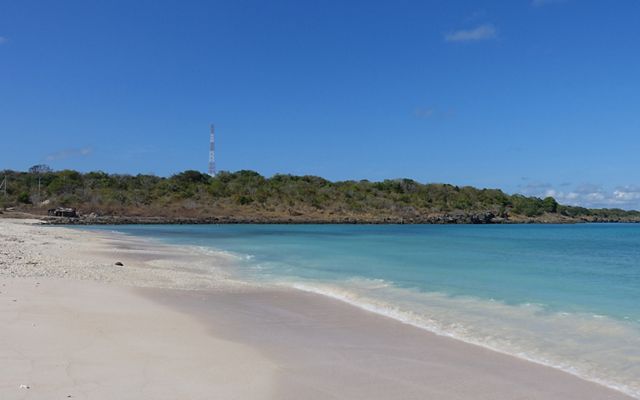
Climate Change and Disaster Risk Mitigation
Climate change has increased coastal communities' risk and vulnerability to natural disasters. This is further exacerbated by population growth and land use changes that damage coastal ecosystems. One of YKAN's key approaches, the Ecosystem-based Adaptation approach is considered a nature-based solution to address the impacts of climate change on people and nature. This approach helps communities cope with climate adaptation deficits and contributes to enhancing the local economy, which may rely on natural resources.
As the outermost archipelagic region of Indonesia, Sabu Raijua Regency in the Savu Sea, East Nusa Tenggara, faces significant risks such as drought, tidal waves, storms and tsunamis. In 2024, YKAN worked closely with the Regional Disaster Management Agency (BPBD) of Sabu Raijua Regency, in collaboration with the Cerdas Antisipasi Risiko Bencana Indonesia (CARI) team, to develop the 2025-2029 Disaster Management Plan for Sabu Raijua Regency. After a five-month process, this document was finalized at the end of 2024 and outlines strategies, policies, and programs for the next five years aimed at minimizing disaster impacts to protect communities.
Quote: Mariski Nirwan
To implement Ecosystem-based Adaptation, YKAN, along with stakeholders, will assist coastal communities, especially at the village level, in assessing climate risks, identifying and adopting disaster risk reduction strategies, and nature-based climate change adaptation.
Download
Stay in the Loop
Get our latest conservation news and see how we’re protecting our natural world.

